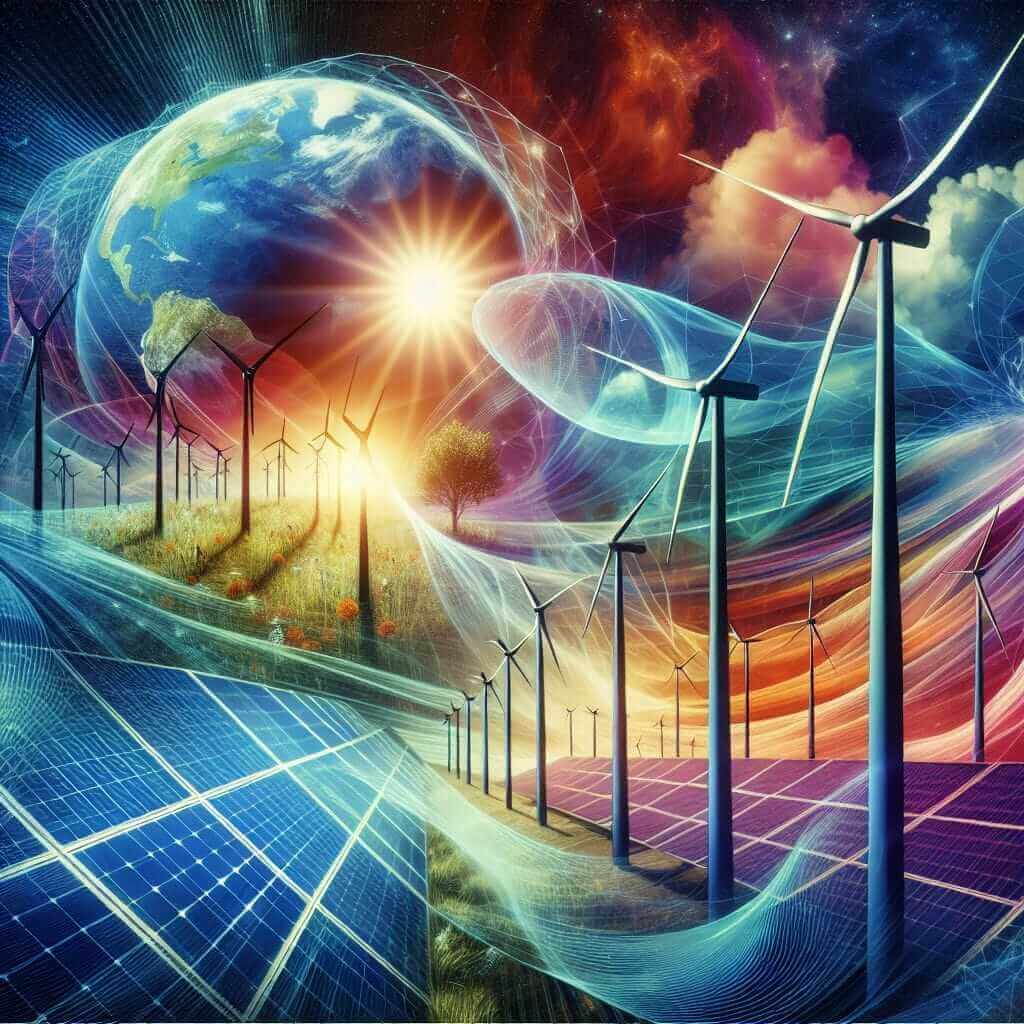The IELTS Reading section measures your ability to understand and interpret academic texts. It commonly features texts on pressing global issues, such as climate change, economic shifts, and technological advancements. One such timely and relevant topic is the impact of renewable energy on geopolitical relations. Given the global push towards sustainable solutions, this topic has appeared frequently in various IELTS test scenarios.
IELTS Reading Practice: The Effects of Renewable Energy on Geopolitical Relations
Practice Reading Passage
Renewable Energy and Geopolitical Dynamics
In recent decades, the global energy landscape has undergone a significant transformation. The shift from fossil fuels to renewable energy sources, such as solar, wind, and hydroelectric power, has not only reshaped economies but also altered geopolitical relations between nations.
Historically, countries rich in fossil fuel reserves wielded substantial geopolitical power, often leading to conflicts and alliances centered around oil and gas resources. However, as renewable energy technologies become more advanced and cost-effective, the traditional energy powers are experiencing a decline in influence.
Renewables have decentralized energy production, enabling nations without fossil fuel reserves to achieve energy independence and security. Countries like Germany and Denmark have successfully reduced their reliance on imported fossil fuels by investing heavily in renewable energy infrastructure. This shift has led to new forms of international collaboration, as countries share knowledge and technology to optimize renewable energy utilization.
Additionally, the rise of renewables has significant implications for developing countries. Nations in Africa, for instance, possess abundant solar and wind resources. By harnessing these energies, they can leapfrog traditional energy development phases, fostering economic growth and reducing poverty.
However, the transition to renewable energy is not without challenges. The production of renewable energy technologies requires various raw materials, such as lithium and cobalt, which are concentrated in specific regions. This new form of resource dependency can lead to geopolitical tensions, similar to those historically associated with fossil fuels.
In conclusion, the rise of renewable energy is reshaping geopolitical dynamics by reducing reliance on fossil fuels, promoting energy independence, and encouraging international collaboration. Nevertheless, it also introduces new challenges related to the availability of essential raw materials required for renewable technology production.

Practice Questions
Multiple Choice Questions
-
What is one major historical geopolitical effect of fossil fuel reserves?
a. Promoting international peace
b. Leading to conflicts and alliances
c. Reducing energy costs globally
d. Increasing renewable energy use -
How have renewable energies affected the geopolitical influence of traditional energy powers?
a. Increased their influence
b. Reduced their influence
c. Maintained their influence
d. Had no effect
Identifying Information (True/False/Not Given)
-
Germany has reduced its reliance on imported fossil fuels by investing in renewable energy.
a. True
b. False
c. Not Given -
The production of renewable energy technologies like solar panels requires no raw materials.
a. True
b. False
c. Not Given
Summary Completion
Complete the summary using the list of words (A-F):
Historically, (1) nations held significant geopolitical power due to fossil fuel reserves. The move towards (2) energy sources has facilitated countries like Germany in achieving energy independence. However, this transition brings new challenges related to the (3) _____ of raw materials required for renewable technologies.
A. renewable
B. Australia
C. distribution
D. resource-rich
E. renewable-rich
F. reliance
Answer Keys
Multiple Choice Questions
- b. Leading to conflicts and alliances
- b. Reduced their influence
Identifying Information
- a. True
- b. False
Summary Completion
- D. resource-rich
- A. renewable
- C. distribution
Common Mistakes to Avoid
When tackling reading passages on complex topics like renewable energy and geopolitical relations, students often make the following mistakes:
- Misinterpreting Key Terms: Ensure you clearly understand terms like “geopolitical,” “energy independence,” and “raw materials.”
- Skimming Inefficiently: Skim for main ideas but read the relevant sections in detail to avoid missing crucial information.
- Overlooking Context: Always consider the broader context of sentences and paragraphs, as this can change the meaning of specific statements.
Vocabulary List
- Geopolitical (adj): /ˌdʒiːoʊ.pəˈlɪtɪ.kəl/ – Relating to politics, especially international relations, as influenced by geographical factors.
- Renewable (adj): /rɪˈnjuː.ə.bəl/ – Capable of being replaced naturally.
- Decentralize (v): /ˌdiːsenˈtræl.aɪz/ – Transfer authority from central to local government.
Grammar Focus
- Passive Voice: Frequently used in academic writing to focus on the action rather than the subject. Example: “Renewable energy has been adopted by many countries.”
- Complex Sentences: These sentences connect multiple ideas and show relationships between them. Example: “While renewable energies reduce reliance on fossil fuels, they also require significant raw materials.”
Conclusion
Mastering the IELTS Reading section requires regular practice with a variety of texts and question types. By familiarizing yourself with current issues like the geopolitical impact of renewable energy, you can improve your comprehension skills and be better prepared for the exam. Remember to practice skimming and scanning techniques, enrich your vocabulary, and refine your grammar for the best performance in the Reading section.